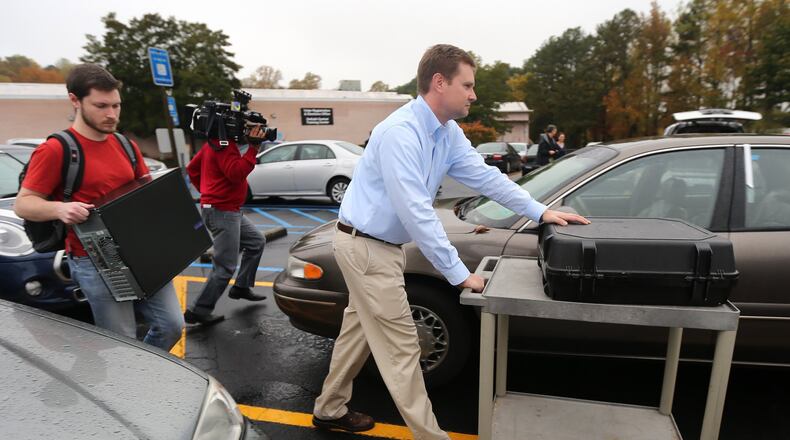A DeKalb County judge is releasing voting records so an investigation into allegations of election irregularities in November 2015 can proceed.
Superior Court Judge Gregory Adams signed an order Tuesday that authorizes confidential election documents to be disclosed to investigators.
“The Investigations Division of the Secretary of State’s Office, having the authority to conduct investigations ... is therefore entitled to immediate access to ... election materials,” Adams wrote.
Secretary of State Brian Kemp sued last month to unseal the records. The defendant in the case, Superior Court Clerk Debra DeBerry, agreed to a consent order that allows election information to be released.
The Secretary of State's Office opened an investigation after a former county elections employee said voters were turned away from polling places and voting materials weren't properly secured during the election on Nov. 3, 2015.
State agents confiscated a voting machine from a Dunwoody precinct where a memory card had jammed on election night, but DeKalb election officials said the card was removed and its votes were county. The election also included the referendum on LaVista Hills cityhood, which fell short by 139 votes.
The investigation stalled last year. DeKalb Superior Court Judge Tangela Barrie said at the time that voting materials can’t be turned over without going through a court process. The lawsuit and Judge Adams’ order completes that process.
Adams’ order allows investigators access to used ballots, voter lists, computer chips containing ballot tabulation programs and copies of computer programs used for ballot design.
After the investigation is completed, it can be brought to the State Elections Board for a decision.
About the Author
Keep Reading
The Latest
Featured


